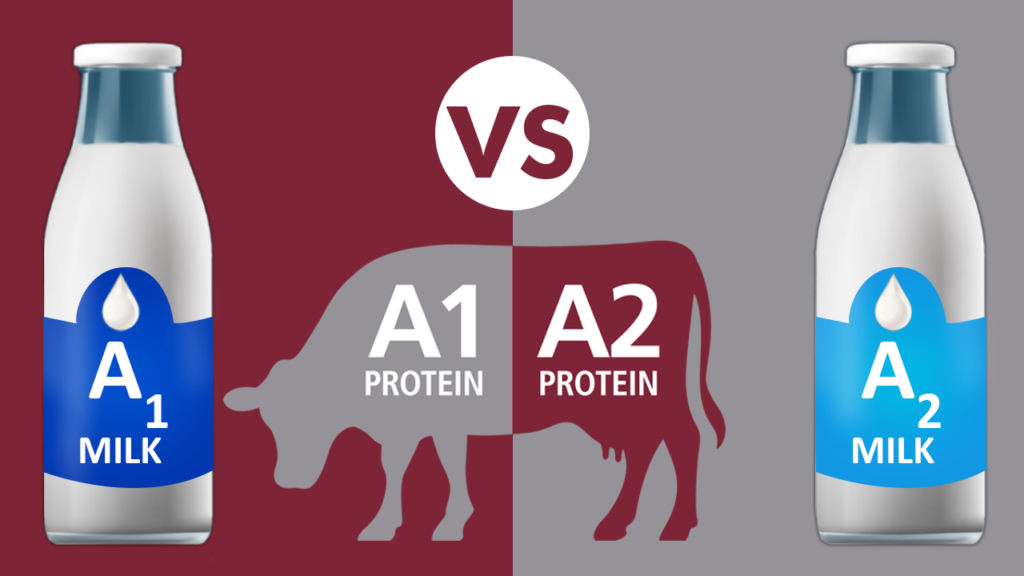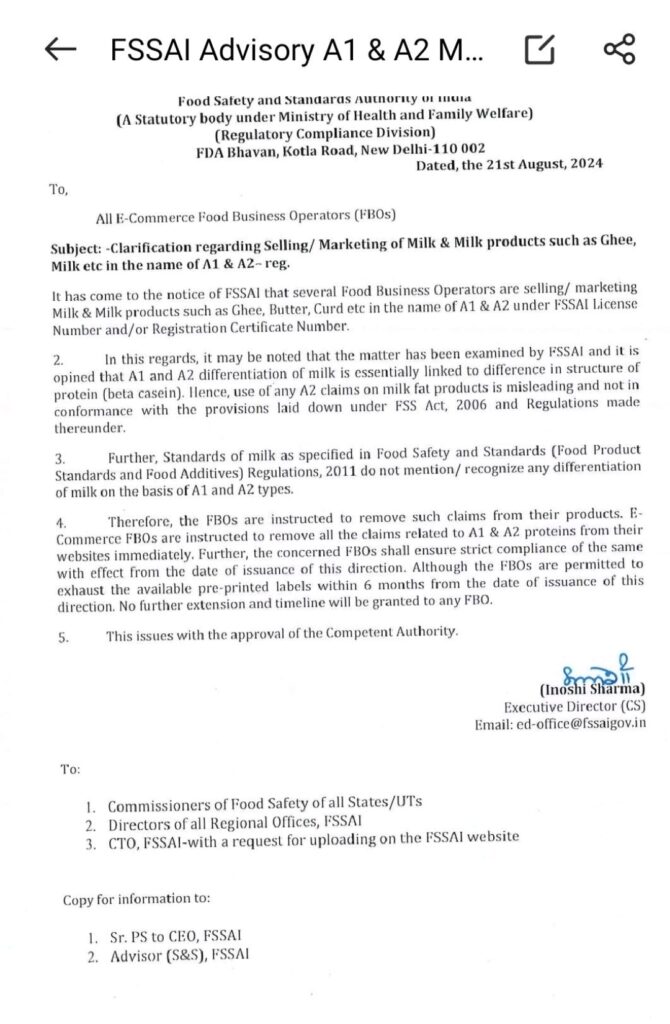No more A1 & A2 differentiation, A2 milk/ghee is misleading as per FSSAI.

The other key update regarding labelling related to milk and milk products, especially those sold as either “A1” or “A2” milk, came from the FSSAI on 21st August 2024.
What are A1 and A2 Milk?
Milk contains proteins; one of them is casein. There are different kinds of casein, such as Alpha-casein and Beta-casein. Beta-casein is one found in cow milk, which comes in two forms: A1 and A2. The difference between them lies in only one amino acid, precisely. A1 milk contains histidine at position 67, whereas A2 milk contains proline at that position.
In digestion, A1 beta-casein releases a peptide called beta-casomorphin-7 that, some research has suggested, may have a link to health issues. It goes a step further in saying that A1 milk is more hazardous than A2 milk, and no scientific proof has been given in support of either side.
Full video – https://youtu.be/BewCEcvBucM?si=GbNVWsgDjYmOtY6K
New Guidelines of FSSAI
Accordingly, the FSSAI has reached a decision that declaring milk as “A2” may be misleading, particularly in the case of ghee or milk fat where this beta-casein is not present in appreciable quantities.
Here’s what you need to know:
No More A2 Claims: FBOs shall not declare any claim regarding A2 on the label display of milk fat products.
Label Change: FBOs have six months from the date of this direction to exhaust the existing pre-printed labels. No extension shall be granted beyond this period.
This step will help consumers from not being misled about the claimed benefit of A2 milk in products where type of beta casein is not a relevant factor.
